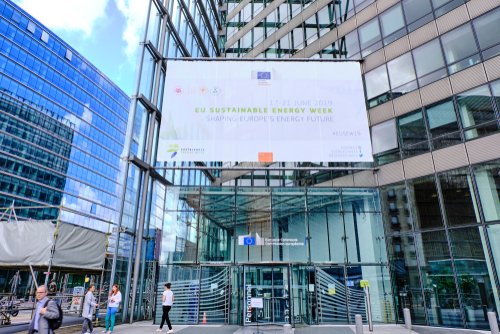Brussels (Brussels Morning) The European Commission recently signed a joint procurement contract with the Glaxo Smith Kline (GSK) pharmaceutical company for the supply of sotrovimab, an investigational monoclonal antibody therapy, developed in collaboration with VIR biotechnology.
The sotrovimab antibody is currently under rolling review by the European Medicines Agency (EMA), the process used to speed up assessments of promising medicinal products in the midst of a public health emergency.
The procurement contract, which was signed on 28 July, is part of the initial portfolio of five promising therapeutics that the Commission announced in June 2021.
Other monoclonal antibodies currently being assessed by the EMA include the combination of bamlanivimab and etesevimab, the combination of casirivimab and imdevimab and, finally, regdanivimab.
In total, 16 EU countries have signed procurement orders for the purchase of up to 220,000 treatments, the Commission announced.
In June, the EU executive appealed to companies and organisations working on the development of compounds in new or repurposed medicines for COVID19 therapeutics. The aim was to identify and connect the companies concerned and to support and encourage overall production planning.
By October, the Commission intends to have drawn up a portfolio of 10 potential COVID-19 therapeutics.
Treating mild symptoms
Sotrovimab can be used in treating coronavirus patients with mild symptoms – those who do not require supplemental oxygen, but who are at high risk for severe COVID-19.
Ongoing studies suggest that early treatment means fewer patients develop more severe symptoms requiring hospitalisation or admission to intensive care units.
“We committed in our COVID-19 Therapeutics Strategy to have at least three new therapeutics authorised by October. We are now delivering a second framework contract that brings monoclonal antibodies treatments to patients”,Stella Kyriakides, Commissioner for Health and Food Safety, declared.
Monoclonal antibodies are proteins conceived in the laboratory that mimic the immune system’s ability to fight the coronavirus. They attach to the spike protein and thus block the virus from attaching to the human cells.
To date, the Commission has concluded nearly 200 contracts for different medical countermeasures worth over 12 billion euro.
Under the framework of the current contract with GSK, EU countries will be allowed to purchase sotrovimab if and when needed, once it has received either emergency use authorisation in the member state concerned or a (conditional) marketing authorisation at EU level from the EMA.
“Alongside vaccines, safe and effective therapeutics will play a pivotal role in Europe’s return to a new normal”, Kyriakides observed.



